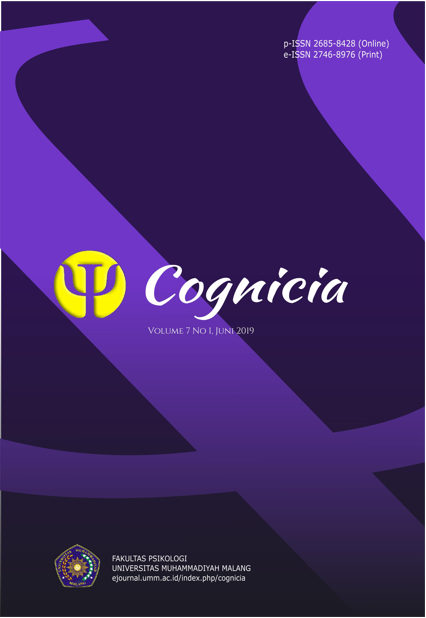Postpurchase dissonance pada pengguna iphone ditinjau dari kepribadian Tipe A dan Tipe B
DOI:
https://doi.org/10.22219/cognicia.v7i1.8149Abstract
In consumer behavior, it followed by post-purchase evaluation. When in the evaluation, there appears a doubt about the purchase decision on a product, and then an individual must be experiencing a post-purchase dissonance. The product used in this study is the iPhone. As for the factors that can influence post-purchase dissonance, one of them is the tendency of individual anxiety, which is caused by personality type. This study aims to determine the differences in iPhone users’ student with type A and type B personalities in experiencing post-purchase dissonance. The analysis used causal comparative and determination of the subject used purposive sampling. The research subjects were iPhone users’ students of Muhammadiyah Malang University, amount 125 subjects. This study used a post-purchase dissonance scale, also type A and type B personality scale. The analysis in this study used an independent sample t-test. The results showed that there was no difference in post-purchase dissonance in terms of type A and type B personality patterns with a significance value of 0.352 and p = 0,05 (0,352 > 0,05).
Keywords: Post-purchase dissonance, Type A and type B personality, iPhone users’ Student.
Downloads
Downloads
Published
How to Cite
Issue
Section
License
Copyright (c) 2019 Risma Evie Kusrina, Muhamad Salis Yuniardi, Alifah Nabilah Masturah

This work is licensed under a Creative Commons Attribution-ShareAlike 4.0 International License.
Authors who publish with Jurnal Cognicia agree to the following terms:
- For all articles published in Jurnal Cognicia, copyright is retained by the authors. Authors give permission to the publisher to announce the work with conditions. When the manuscript is accepted for publication, the authors agree to automatic transfer of the publishing right to the publisher.
- Authors retain copyright and grant the journal right of first publication with the work simultaneously licensed under a Creative Commons Attribution-ShareAlike 4.0 International License that allows others to share the work with an acknowledgment of the work's authorship and initial publication in this journal.
- Authors are able to enter into separate, additional contractual arrangements for the non-exclusive distribution of the journal's published version of the work (e.g., post it to an institutional repository or publish it in a book), with an acknowledgment of its initial publication in this journal.
- Authors are permitted and encouraged to post their work online (e.g., in institutional repositories or on their website) prior to and during the submission process, as it can lead to productive exchanges, as well as earlier and greater citation of published wor (See The Effect of Open Access).

This work is licensed under a Creative Commons Attribution-ShareAlike 4.0 International License







